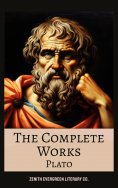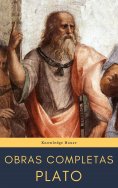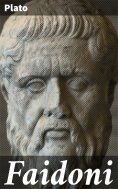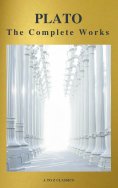Laws
Über das eBook
In 'Laws,' Plato embarks on a profound exploration of political philosophy and ethics, delving into the very foundations of lawful governance and social order. Written in a dialogue format characteristic of Plato's style, this late dialogue shifts from the idealism outlined in 'The Republic' to pragmatic considerations of how laws can be effectively implemented in a real society. The work juxtaposes various forms of governance, addresses the moral responsibilities of citizens and legislators, and articulates a vision for a just city-state that emphasizes the importance of education and communal well-being.
Über den Autor
Plato, the eminent philosopher of ancient Greece, was born circa 427 BCE, though some historical accounts suggest his birth year might vary slightly. A student of Socrates and the teacher of Aristotle, Plato's contribution to philosophy, political theory, and education is unparalleled. His works are written primarily in the form of dialogues, where philosophical ideas are explored through conversations among various characters, with Socrates often taking a central role. These dialogues have been instrumental in the development of Western philosophy and continue to be studied extensively across the world. One of Plato's late dialogues, 'Laws' ('Nomoi' in Greek), is his longest and one of his last written works, in which he articulates a detailed legal code for a hypothetical city-state. Unlike his earlier work 'The Republic', which outlines an ideal society governed by philosopher-kings, 'Laws' delves into the practicalities of governmental structures and the laws necessary to regulate the conduct of citizens. In this work, Plato departs from his earlier idealism and adopts a more pragmatic approach to the creation of a functioning society. Throughout his life, Plato's vast intellectual output encompassed not only philosophical treatises but also significant contributions to ethics, metaphysics, and epistemology. His literary style combines rigorous argumentation with compelling mythological narratives, reflecting both a rational and imaginative approach to tackling profound questions about the human condition, the nature of knowledge, and the realization of a just society.
Produkt Details
Verlag: DigiCat
Genre: Sprache - Englisch
Sprache: English
Umfang: 577 Seiten
Größe: 827,1 KB
ISBN: 8596547026365
Veröffentlichung: 28. Mai 2022

















![eBook: The Harvard Classics & Fiction Collection [180 Books]](https://media.readfy.com/cover/9782377938834/118/the-harvard-classics-fiction-collection-180-books.jpg)









